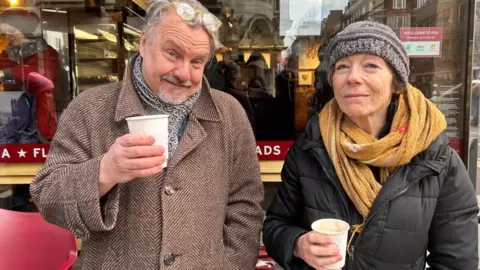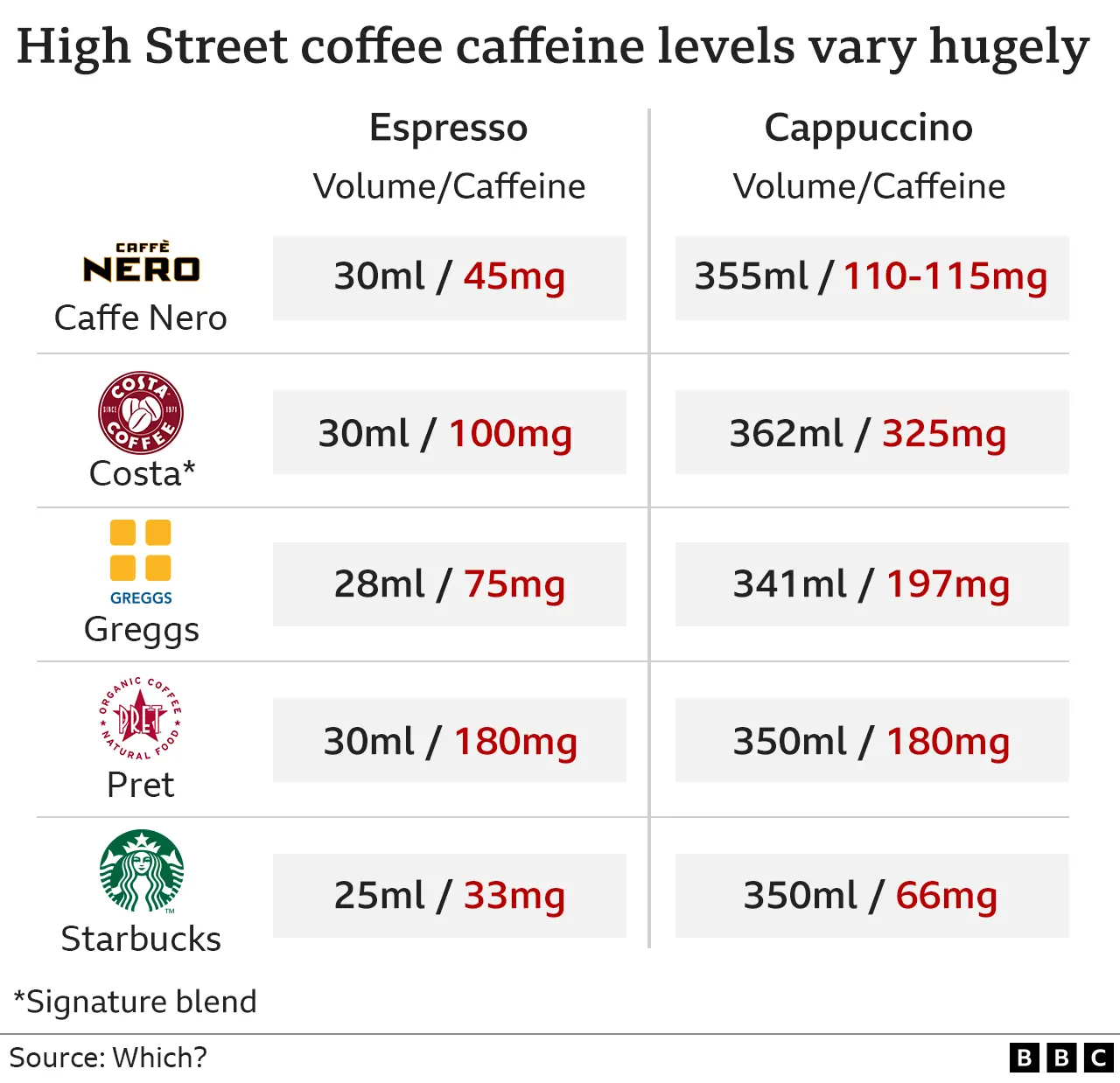Costa cappuccino has five times more caffeine than Starbucks'
 Getty Images
Getty ImagesFor many of us coffee offers a much needed boost, but we may be getting much more - or less - caffeine than we bargained for at popular High Street coffee shops.
Consumer group Which? compared the caffeine in drinks at five big chains and says it found "huge differences".
A medium cappuccino at Costa Coffee for example has 325mg of caffeine - five times more than Starbucks'.
Meanwhile Pret was found to have the strongest espresso and filter coffee.
Which? said consumers should be alert to caffeine levels.
"Our research shows you may be consuming significantly more, or less, caffeine than you bargained for," said its nutritionist Shefalee Loth.
"Most of the time this shouldn't be an issue but if you drink a lot of coffee or need to limit your caffeine intake you might want to consider what you're ordering and where from."

Simon, 64, told the BBC he normally preferred small, independent coffee shops but did sometimes go to Costa and Pret.
"I'm not really strongly affected by caffeine, I can drink coffee in the evening and it doesn't really affect me that much," he said.
Gurpreetpal Bahtoye, 37, from Wolverhampton told the BBC he travelled "that extra bit just go to Costa because I like the way they make their lattes".
"I was a bit surprised by this survey - by the extent of the variation of caffeine content. I had a latte once from McDonalds that gave me this huge caffeine kick…and then I crashed. I had to take a nap afterwards," he said.
McDonald's declined to comment.
Caffeine is a natural stimulant that can make you more alert. However, some people are sensitive to it or need to avoid it for health reasons, such as being pregnant.
Which? compared the caffeine levels in drinks like cappuccino and espresso at Caffè Nero, Costa, Greggs, Pret a Manger and Starbucks.

The consumer group did not include the likes of McDonald's or Tesco which also sell a lot of coffee, telling the BBC it only included retailers happy to share caffeine content information with it.
It said it found big differences between chains. For example, Costa's medium cappuccino was strongest, with caffeine equivalent to four cups of tea, while Starbucks' contained the least at 66mg - less than a single cup of tea.
Caffeine risks
Most people do not need to worry about how much coffee they consume.
On balance coffee - and the hundreds of compounds it contains - seem to come with health benefits and three to four cups a day (adding up to 300-400 mg of caffeine) is fine for most people.
But the NHS recommends pregnant women should consume no more than 200mg of caffeine per day, which would rule out a Costa cappuccino (325mg).
The NHS says drinking too much caffeine can lead to smaller babies, who could have health problems later, as well as potentially increasing the risk of miscarriage.
And if caffeine is contributing to insomnia or giving you heart palpitations then you may want to cut down.
One factor that can impact caffeine content of drinks is the type of coffee bean. Of the two main types used, Arabica beans contain around half the caffeine of Robusta beans, and there are also variations in taste between the two.
Costa Coffee said the amount of caffeine in its drinks varied depending on size of a drink and the type of coffee used.
"We would encourage customers to be aware of the caffeine content in their favourite Costa coffee to ensure it is right for their dietary requirements or lifestyle choice," a spokeswoman said.
Pret declined to comment, while the BBC has contacted Caffè Nero, Greggs and Starbucks for comment.
